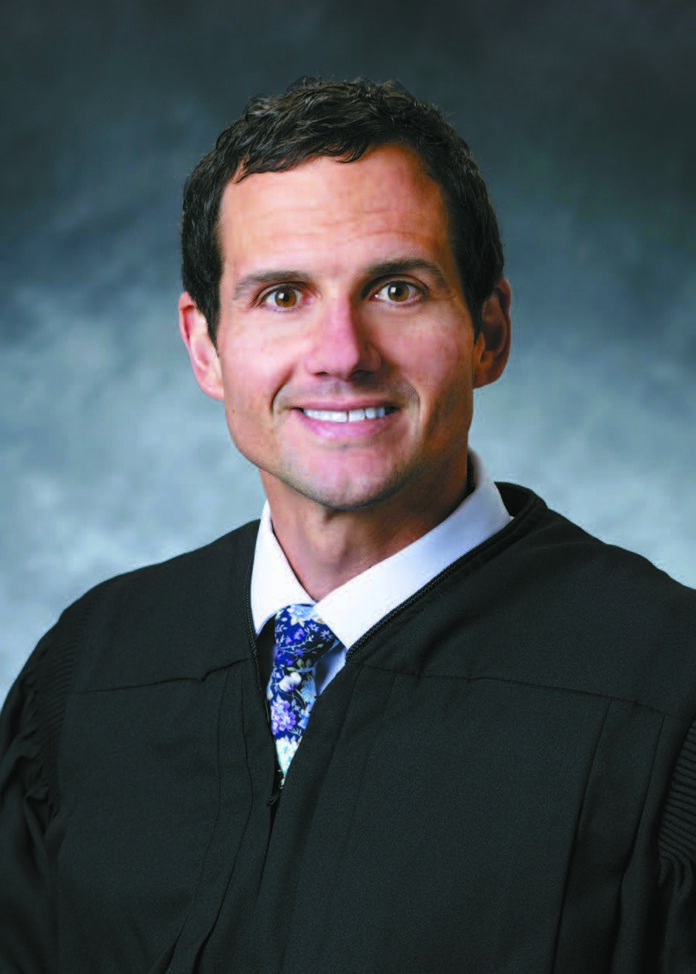By Steve Hanke
It is a pleasure and honor to take over the Judge’s View column from retiring Judge Dale Harris. His articles have informed, challenged, and inspired many, including myself. I trace my own interest in our justice system back to reading former Winona County Judge Dennis Challeen’s editorial columns in the Winona Daily News. Judge Challeen lived in a floating cabin (called a boathouse, not a houseboat) anchored to an island on the backwaters of the Mississippi River. We call them boathouses in Winona. Houseboats are “river-fairing” boats with motors that have onboard temporary living quarters. Boathouses are semi-permanent floating structures…I digress.
Judge Challeen is one of the first judges in Minnesota and the United States to implement restorative justice and offender-based sentencing principles. He routinely sentenced non-violent offenders to community service hours and required offenders to complete moral recognition therapy. Moral reconation therapy (MRT) is a cognitive-behavioral intervention aimed at reducing risk for criminal recidivism by restructuring antisocial attitudes and cognitions (i.e., “criminogenic thinking”). Judge Challen promoted restitution paid to victims instead of fines paid to the government, and he asked offenders to participate in deciding their own sentence — deciding how they would make things right. He famously sentenced a teenager who vandalized Winona’s Veterans Memorial Park to watch “Saving Private Ryan” and write an essay about how his actions affected local veterans of World War II.
Judge Challeen also did not shy away from incarcerating criminal offenders who he unscientifically categorized as “Slicks”; perpetual victimizers who considered themselves more intelligent than everyone around them. They would never reform, so they needed to be incarcerated for as long as possible to maintain public safety.
Judge Challeen published his collective of newspaper editorial columns as the book “Swamp Water Jurisprudence”, which I highly recommend. Judge Challeen’s writing and storytelling style is part John Steinbeck and part Mark Twain. Challeen in fact regularly quotes Twain when panning our historical approach to the U.S. criminal justice system:
What gets us into trouble is not knowing what we don’t know…
It’s what we know for sure that just ain’t so.
-Mark Twain
Criminology is an upside-down discipline: what makes sense for “normal reasoning people” generally cannot be validated by research because we are imposing our own moral standards on people who do not think or reason like “normal moral people.” It is counterintuitive: “what we know for sure that just ain’t so.” Thus, our laws and what we try to do to criminal offenders or for criminal offenders fail. Swamp Water Jurisprudence sheds some light on our counterintuitive world below the waterline of our justice system, where judges (and all of us to some degree), deal with humankind’s meanness, hurt, and irresponsibility towards each other.
While Challeen pioneered many reforms, he readily admitted that there are no easy solutions in our criminal justice system. I agree with him that one of the most difficult aspects of our criminal justice system is rehabilitating offenders: “Some criminal offenders don’t rehabilitate; they must habilitate.” How do you teach responsibility to someone who doesn’t understand responsibility? Some people grow up without learning responsibility. Thus, they cannot rehabilitate because they have nothing to return to; they must learn responsibility, a new moral code, self-control, and habilitate for the first time in their lives.
Change for this type of individual must come from within, not from without. We must approach these individuals with respect, empathy, understanding — and treatment.




